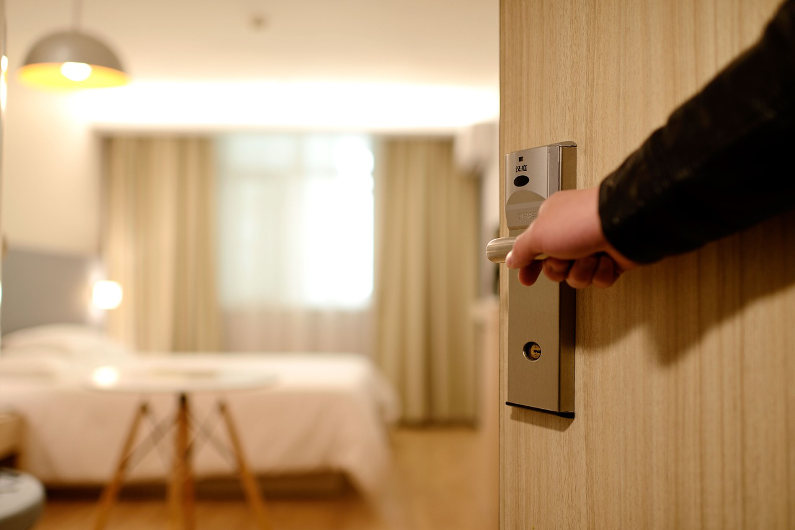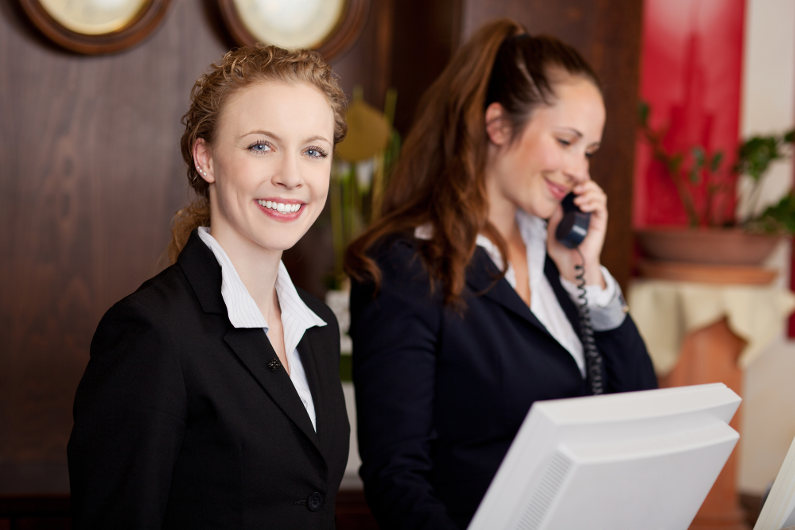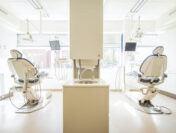Opening your own guest house or hotel is an exciting venture, though there’s so much that you’ll need to think about to begin with. You’ll need to consider who your target audience is, for instance, as well as find ways to make your hotel catch the eye over competitors. You’ll always be thinking of methods to make a return on your investment too.

Then there’s the matter of keeping all your hotel guests safe, where this handy guide will come in handy…
1. Install CCTV
Set up security cameras throughout your hotel and anyone staying in one of your rooms will receive added peace of mind that they will be safe, as well as that their belongings will be secure. However, just having a surveillance system in place isn’t enough. Be sure to constantly monitor your set-up, even if this means hiring a third-party company to do so. Certain systems also come with a voice command option, which means that if you spot any wrong-doing, you can quickly warn those involved to stop their actions.
2. Protect your online data
It’s no longer enough in the 21st century to only consider the physical safety hotel guests. Hotels have become a prime target for cyber attacks. According to a report by PwC, the hospitality industry has the second-highest number of cybersecurity breaches, with most of the prominent hotels in the industry having fallen victim to breaches.
Have a process in place to regularly update your IT systems and you’ll be able to heighten the security around all your files and information, on top of reducing the risk of your business suffering a cybersecurity breach. You should also be making sure that backing up your data becomes a habit, so you can eliminate the risk of losing it or having it irretrievably damaged. A recommended strategy is to use a cloud service daily, have weekly server backups, and follow these up with quarterly server backups and then yearly backups.
Use passwords around your hotel? Just be sure to change them often and also make sure you change them any time a staff member leaves to avoid any breaches.
3. Have your electric supply regularly checked
A regular Electrical Installation Condition Report (EICR) is a must when you’re in charge of a guest house or hotel. This is because, since your business is constantly running, your systems can be subject to wear, tear, corrosion and overloading. Such a report, which must be carried out by a qualified electrician, will ensure that the electrical appliances in each room are fit for purpose.
These checks need to be carried out frequently. That way, you’ll be limiting the risk of electrical shocks, fires and accidents, and therefore reducing accidents in the workplace – something which is a legal requirement since the introduction of the Electricity at Work Regulations 1989.
4. Have your gas supply regularly checked too
Don’t forget to regularly check your business gas supplies and appliances as well. The Gas Safety Regulations 1998 states that you must arrange annual gas safety checks for any appliances that are serving guest accommodation, even if it’s sited away from the guests’ rooms.
Staff members will also need to be trained about how to correctly use all of your hotel’s gas appliances. Show them how to carry our visual checks as well, so they can spot obvious faults. This could include any damaged pipework or connections. While any new installations must be carried out by someone who is Gas Safe-registered, anyone can change a LPG gas cylinder or hose once they are competent to do so.
Another thing for the to-do list is to install carbon monoxide and dioxide alarms throughout your guest house or hotel. These alarms can signify any fault and help you avoid any catastrophes. They should give an audible alarm when levels are dangerous and should be able to automatically shut off your gas system.

5. Set up a clear emergency response plan
In the event of an emergency at your hotel or guest house, all staff members should know how to act. Regular meetings with law enforcement and emergency services should be scheduled so you have a good communication plan in place and can update it as and when required. In doing so, you can prepare your staff so that everyone is calm and knowledgeable in a worst-case scenario.
“We make sure all our staff have sufficient training to know how to act in an emergency. Communication is key as it’s clear we must be calm and composed in critical moments as this can help us make sure both our guests and staff members are as safe as possible and can help avoid possible catastrophes,” pointed out Aneil Handa, who is director of The Cairn Collection.
6. The need for staff to wear uniforms
Every member of staff at your guest house or hotel should be wearing corporate uniform. Not only does it help your business look professional and smart, but it also gives your guests a clear view of who they can approach about a query, and who indeed is allowed in certain areas of the business. In guest areas, knowing who members of staff are is essential. This is because it shows that your company have guests’ safety at the forefront due to staff always patrolling the areas.
Sources
https://smallbusiness.co.uk/four-things-to-know-before-starting-a-small-hotel-2459257/
http://www.hse.gov.uk/gas/landlords/safetycheckswho.htm
https://www.tourismtattler.com/articles/hospitality/hotels-prime-target-cyber-threats/70691




